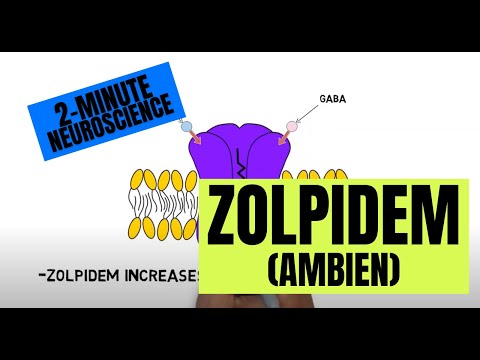- Subjects: Neurosciences
- |
- Contributor:
- Neuroscientifically Challenged
- Ritalin
- Concerta
- methylphenidate
This video is adapted from: https://youtu.be/JTQQkC23hyY?si=IQcwUcJC26_KeI6-
Methylphenidate, better known as Ritalin or Concerta, is a stimulant medication primarily used to treat ADHD. In this video, I discuss how methylphenidate affects the brain and how this is thought to lead to therapeutic effects in ADHD. [1][2]
TRANSCRIPT:
Methylphenidate is a stimulant medication primarily used to treat ADHD, although it is sometimes also used to treat daytime sleepiness associated with narcolepsy and has several other off-label uses. Methylphenidate is better known as Ritalin or Concerta, which are two of the numerous brand names the drug is sold under.
Methylphenidate is a stimulant drug. Its primary mechanism of action is thought to be the inhibition of reuptake of the neurotransmitters dopamine and norepinephrine. Reuptake is a process used by neurons to remove excess neurotransmitters from the synaptic cleft. In reuptake, proteins called transport proteins move neurotransmitters out of the synaptic cleft and typically back into the neuron that released them. Thus, by inhibiting reuptake, methylphenidate increases levels of dopamine and norepinephrine in the synaptic cleft. These elevated levels of dopamine and norepinephrine lead to increased activity at the receptors for these neurotransmitters, and cause various alterations in brain activity.
For example, methylphenidate has been shown to increase activity in the prefrontal cortex, an area of the brain that’s considered important to attention and other executive functions. The exact way the pharmacological actions of methylphenidate help improve the symptoms of ADHD is not fully understood, but in general it’s thought that dopamine and norepinephrine signaling are important to attention and other executive functions, and thus increasing levels of these neurotransmitters leads to therapeutic effects in ADHD.
Although inhibiting dopamine and norepinephrine reuptake appears to be the primary mechanism of action for methylphenidate, the drug does have a number of other actions in the nervous system. For example, it also stimulates serotonergic and adrenergic receptors. It’s unclear exactly what contribution these other actions may make to methylphenidate’s therapeutic effects, but studies have found that the effect on adrenergic receptors specifically may be important to the drug’s ability to enhance cognitive function.
- Faraone SV. The pharmacology of amphetamine and methylphenidate: Relevance to the neurobiology of attention-deficit/hyperactivity disorder and other psychiatric comorbidities. Neurosci Biobehav Rev. 2018 Apr;87:255-270. doi: 10.1016/j.neubiorev.2018.02.001. Epub 2018 Feb 8. PMID: 29428394; PMCID: PMC8063758.
- Shellenberg TP, Stoops WW, Lile JA, Rush CR. An update on the clinical pharmacology of methylphenidate: therapeutic efficacy, abuse potential and future considerations. Expert Rev Clin Pharmacol. 2020 Aug;13(8):825-833. doi: 10.1080/17512433.2020.1796636. Epub 2020 Jul 25. PMID: 32715789.


























































































































































